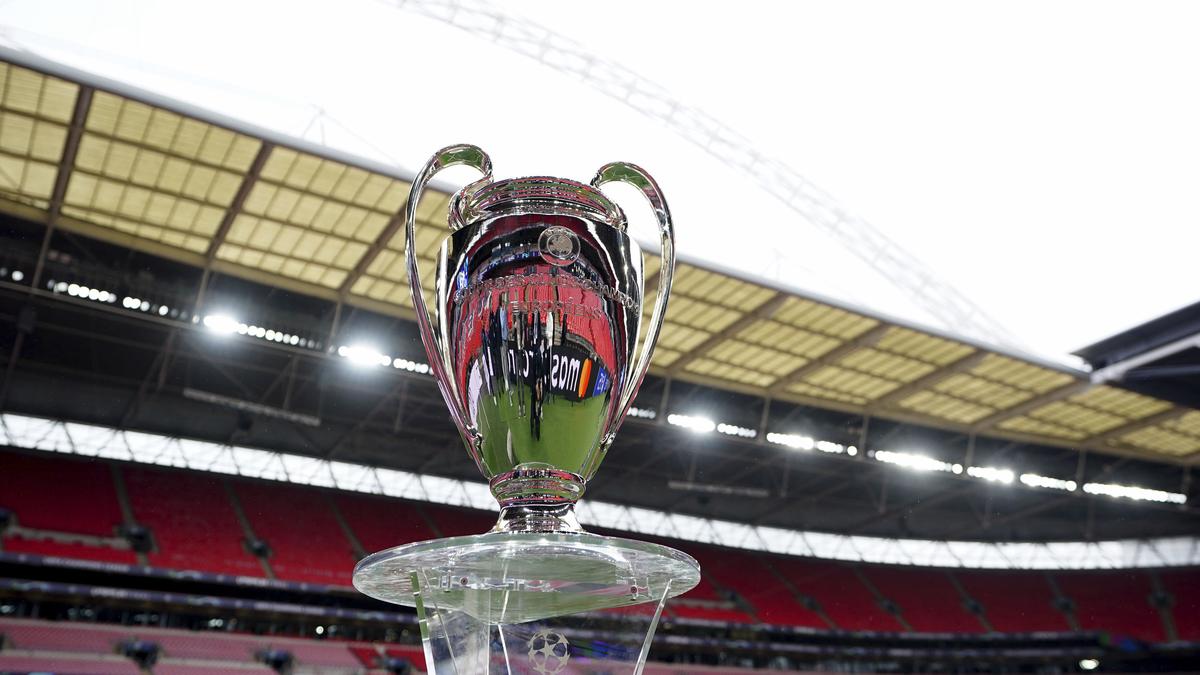What Real Madrid’s UEFA Champions League win means for the other teams in Europe next season
Real Madrid winning the Champions League title also was a victory for Shakhtar Donetsk and defeat for Borussia Dortmund also was a loss for Eintracht Frankfurt.
Madrid’s 2-0 win Saturday in the final in London settled the last direct entries into the revamped 36-team Champions League lineup for next season.
UEFA retains an entry for the defending champion but Madrid already secured its place by winning the Spanish league title a month ago.
That entry reverts to the domestic league winner in the qualifying rounds that has the highest ranking based on results in UEFA competitions over five seasons. That is Ukraine Premier League winner Shakhtar, which gets the upgrade and the guaranteed share of Champions League prize money worth tens of millions of euros (dollars).
Dortmund qualified for the Champions League as the fifth-place team in the Bundesliga. Germany got a bonus fifth entry that UEFA now awards to the two countries whose teams performed best across this season’s European competitions. Italy got the other bonus place.
Had Dortmund beaten Madrid in the final, Germany would have got another Champions League entry for its sixth-place Bundesliga team, which was Eintracht.
Eintracht now enters the second-tier Europa League, which it won in 2022.
The 29 direct qualifiers for the next Champions League are now known and seven more places will be confirmed in the qualifying rounds that finish in August.
The new intake includes competition debutants Girona of Spain and Brest of France. It also includes teams that last played decades ago when the competition was still known as the European Cup.
Aston Villa was the defending European champion when losing in the quarterfinals in 1983. Bologna’s only European Cup appearance was a quick exit in the preliminary round of the 1964-65 season.
All those teams with little or no recent track record in European competitions will come out of the low-ranked seeding pot when the draw is made August 29 in Monaco.
ALSO READ: Real Madrid wins Champions League: Full List of UCL winners as Madrid beats Dortmund in summit clash
UEFA scrapped the traditional group stage in favour of a new league phase, under pressure in 2021 from the influential European Club Association whose leaders wanted more games, and a wider ranger of opponents.
The new league phase guarantees each team eight games, instead of six, and eight different opponents, instead of three.
UEFA agreed that format in principle three years ago when the ECA was strongly influenced by Juventus, Real Madrid and Barcelona who had secretly plotted a breakaway Super League to effectively wreck the Champions League.
Despite the UEFA concessions, those clubs — joined by nine others in Italy, Spain and England — still went ahead to launch a Super League in April 2021 that collapsed within two days. A furious backlash from fans in England and threats of legislation by the British government forced the six English clubs to withdraw.
The four Champions League finals played since April 2021 all were won by Super League clubs — Madrid, Chelsea and Manchester City — which tried to break apart the premier European competition that is now 69 years old.
The seven remaining places in the next 36-team lineup will go to five domestic champions who advance through qualifying rounds plus two teams from a separate route for runners-up, third- or fourth-place teams from high-ranking leagues.
Qualifiers could include Galatasaray, Lille, Red Star Belgrade, Salzburg and Young Boys.
Prize money for the 38 teams will be shared from a UEFA fund of about 2.44 billion euros ($2.65 billion) and the eventual champion should earn at least 150 million euros ($163 million). Each team will be guaranteed about 20 million euros ($21.7 million) even if it loses all eight games.


